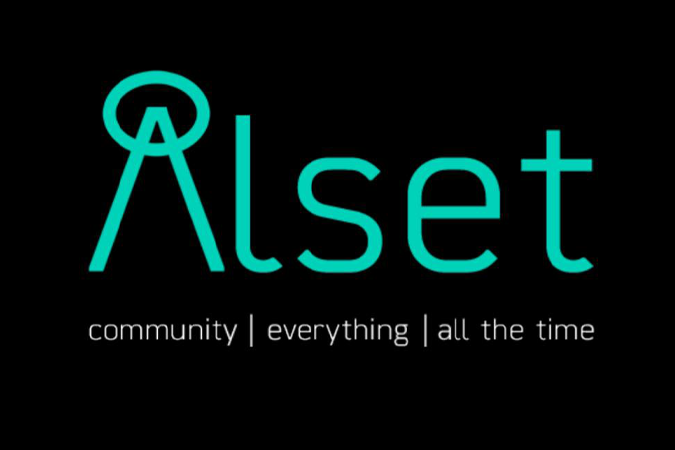Embracing AI Digital Marketing Content Marketing: Strategies for 2023
Digital content marketing is the strategic creation, distribution, and promotion of relevant content to attract and engage a target audience. It helps businesses generate leads, build brand awareness, and increase customer retention. Artificial intelligence (AI) is transforming various industries, and content marketing is no exception. AI-powered tools and technologies are enhancing content creation, personalization, targeting, and data analysis. Here, Seek Social explores the evolution of AI in digital content marketing, its benefits and challenges, and how to prepare for an AI-driven future in the marketing landscape.
The Evolution of AI in Content Marketing
AI’s integration with digital content marketing began with simple automation tasks like scheduling and analysing user data. Over time, advancements in natural language processing (NLP) and machine learning have allowed AI to assist in content creation more than ever before. AI technologies have already started enabling marketers to create more targeted and relevant content, improve customer experiences, and optimise marketing strategies. Innovative tools like chatbots and recommendation engines have enhanced user interactions and increased engagement.
In 2023, AI is expected to play an even more significant role in digital content marketing, with advanced tools for content generation, personalisation, and predictive analytics. Marketers will need to adapt and leverage AI to stay competitive in the evolving landscape.
AI-Driven Content Creation
AI-powered copywriting tools, like ChatGPT and Writesonic, use natural language generation to create high-quality content, including blog posts, ads, and social media posts. These tools save time and reduce the need for manual copywriting. Natural language generation (NLG) and processing (NLP) technologies allow AI to understand and generate human-like text. This enables AI tools to create content that is contextually relevant, grammatically correct, and engaging.
AI can also analyse customer data and preferences to create highly personalised content, improving user experiences and boosting engagement. Segmentation and targeting become more precise, allowing for better connection with audiences.
AI and Data Analytics in Content Marketing
AI-powered data analytics tools can process vast amounts of data quickly and efficiently, providing marketers with valuable insights into customer behaviour, preferences, and trends. This enables them to make data-driven decisions and optimise content strategies.
AI-powered predictive analytics can anticipate customer needs and preferences, allowing marketers to create highly targeted campaigns and improve customer experiences. By analysing data and providing actionable insights, AI enables marketers to optimise their digital content marketing strategies, identify high-performing content, and allocate resources more effectively.
Ethical Considerations and Potential Challenges
While AI can streamline content creation, striking a balance between automation and human creativity is crucial to maintain authenticity and originality in digital content marketing. As AI relies on customer data, marketers must also remember to uphold data privacy and security to maintain consumer trust and comply with regulations.
AI systems can also inherit biases from their training data, which may result in unfair or offensive content. Marketers must be vigilant in addressing these concerns and ensuring ethical AI-driven digital content marketing practices.
Other Case StudiesVIEW ALL Case Studies
Case studies of successful AI-driven content marketing campagins
In recent years, AI-driven digital content marketing has emerged as a powerful tool for businesses to create highly personalised and engaging content for their customers. By leveraging artificial intelligence, companies can analyse vast amounts of data to predict customer preferences and deliver tailored content that resonates with their target audience. This approach has proven to be effective in increasing user engagement, fostering customer loyalty, and driving revenue growth. In this article, we will explore case studies of successful AI-driven content marketing campaigns by companies like Netflix, Spotify, and Amazon.
Netflix: Revolutionising Streaming with Personalised Recommendations
Netflix, the leading streaming platform, has successfully harnessed the power of AI-driven digital content marketing to provide personalised recommendations to its users. The company’s sophisticated AI algorithms analyse each user’s viewing history, preferences, and ratings to curate a list of content that aligns with their unique tastes. This personalised approach has resulted in increased user engagement, as subscribers spend more time browsing and watching content tailored to their preferences.
Moreover, Netflix’s AI-driven content recommendations have also helped the platform retain subscribers by continuously offering fresh and relevant content. The success of Netflix’s AI-driven digital content marketing strategy is evident in the company’s exponential growth, boasting over 200 million subscribers worldwide.
Spotify: Enhancing the Music Experience through AI-Driven Content
Spotify, the popular music streaming service, has also embraced AI-driven digital content marketing to deliver personalised playlists and recommendations to its users. By analysing user behaviour, listening habits, and musical preferences, Spotify’s AI algorithms curate custom playlists, such as Discover Weekly and Release Radar, that cater to each user’s unique tastes.
This AI-driven approach to content marketing has significantly impacted user engagement and loyalty, as users are more likely to spend time exploring new music and artists recommended by the platform. As a result, Spotify has become one of the most popular music streaming services globally, with over 345 million active users and 155 million premium subscribers.
Amazon: Reinventing E-Commerce through Tailored Content
Amazon, the e-commerce giant, has successfully leveraged AI-driven digital content marketing to provide personalised recommendations and tailored content to its customers. The company uses AI algorithms to analyse customer browsing and purchase history, wish lists, and product reviews to predict their preferences and suggest relevant products.
This AI-driven approach to digital content marketing has not only resulted in increased user engagement and customer loyalty but also driven significant revenue growth for Amazon. According to a report by McKinsey, Amazon’s product recommendations account for 35% of the company’s total sales. This demonstrates the power of AI-driven content marketing in driving customer satisfaction and business success.
Preparing for the AI-Driven Content Marketing Future
Marketers should familiarise themselves with AI tools and technologies to stay competitive and improve their digital content marketing strategies. AI should complement human creativity, not replace it. A collaborative approach between humans and AI will yield the best results in content marketing. As AI continues to evolve, marketers must invest in learning and development to stay informed and adaptable in the rapidly changing digital landscape.
AI is poised to play a significant role in digital content marketing by 2023, offering advanced tools for content generation, personalization, and data analysis. AI-driven content marketing presents both opportunities and challenges, including improved efficiency, personalization, and data analysis, as well as ethical concerns and the need for a balanced approach. To succeed in digital content marketing, marketers must embrace AI, invest in continuous learning, and maintain a collaborative approach between humans and AI.
If you want to stay ahead of the curve and start implementing AI into your 2023 digital content marketing strategy, contact Seek Social today and learn how we can help boost your business’ digital presence.




